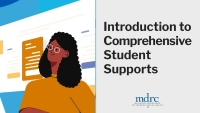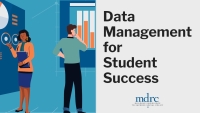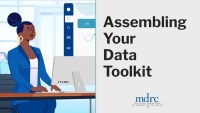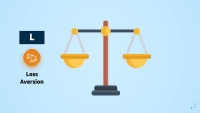Putting Evidence to Work for Student Support: Videos from the Tools for Postsecondary Schools Toolkit
These videos were originally featured in this interactive toolkit, designed for student success, student affairs, and advising staff members and administrators at two-year and four-year colleges who are interested in using evidence-based practices to support students. The guide aims to provide information and tools that can be readily put into action to support current initiatives and to help users plan for the broader implementation of comprehensive programs. It provides practical guidance and resources in four areas:
- Comprehensive student supports
- Data management for student success
- Behavioral science insights and human-centered design
- Return on investment
Introduction to Comprehensive Student Supports
The strongest evidence for student success has been associated with interventions that contain multiple components, an approach known as “comprehensive student supports.” In this video, MDRC introduces a Toolkit that will teach you more about the evidence behind and lessons learned from implementing four components of a comprehensive student supports model: High-Impact Coaching, measures to promote Academic Momentum, Financial Incentives, and Data Management for Student Success.
High-Impact Coaching
High-impact coaching is a fundamental component of a comprehensive student supports model. It refers to coaching that follows evidence-based best practices. This video discusses three evidence-based elements of high-impact coaching: holistic advising, properly calibrated caseload structure and meeting frequency, and outreach to students.
Academic Momentum
Research has shown that academic momentum—continuous, full-time enrollment—is strongly correlated with college success. To help you learn how to support full-time enrollment for students at your institution, this video introduces a problem-solving framework developed by MDRC’s Center for Applied Behavioral Science called “Know-Feel-Do,” which can help you to better understand students’ challenges with enrolling full time and then design more responsive solutions.
Financial Incentives
This video elaborates on the evidence behind two types of financial incentives that have been shown to improve academic outcomes: scholarships and monthly incentives. It also provides considerations and suggestions for implementing financial incentives at your institution.
Data Management for Student Success
This video is the first in a two-part series that covers best practices in data management for student success. It covers the importance of data and offers some guidance on data management, such as features to include in a management information system, or MIS.
Assembling Your Data Toolkit
This video is the second in a two-part series that covers best practices in data management for student success. It discusses how to determine which data elements are the most illuminating and therefore worth collecting and using. It also explains how to create data-review routines that help you make progress toward your equity goals and make continual program improvements.
SIMPLER Design Solutions
The SIMPLER framework describes a set of behavioral principles applied across the 15 tests in MDRC's Behavioral Interventions to Advance Self-Sufficiency (BIAS) project, which was the first major effort to apply behavioral insights to human services in the United States. SIMPLER was developed to summarize behavioral concepts that can help make campus communications more memorable and actionable.












